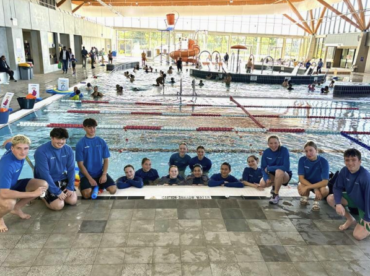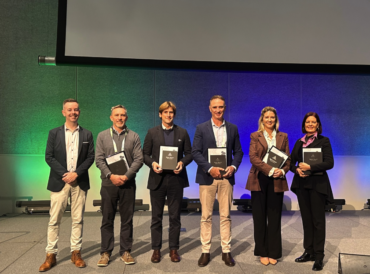By Dr Jeff Walkey, National Disability and Diversity Manager and CEO of Belgravia Foundation
Loneliness, like any emotion, is a common human experience, felt by everyone at some point during their life. Loneliness can occur in response to a life event or transition, like losing a partner, leaving home, or retiring from work. When loneliness persists over many weeks, its impact can be pervasive and detrimental.
Persistent loneliness1 is widespread in Australia. No part of the community is immune to this occurrence nor its impact; loneliness affects everyone. Persistent loneliness results when a person is lonely for at least eight weeks and persistent social isolation when a person has infrequent social contact for at least eight weeks.
Almost one in four people experience persistent loneliness. Persistent loneliness reaches every corner of the country, more so in rural areas, with hot spots in Tasmania (38%) and Northern Territory (33%), and above 20% elsewhere in Australia. Across every adult age group, loneliness exists, and is most prevalent among 18 to 24 years olds (41%), and those 45 to 54 years old (32%). Persistent social isolation is too common, impact on average one in six men and women.
The impacts of prolonged loneliness on health and happiness are dire. Australians who feel lonely are two times more likely to have a chronic disease (e.g. heart disease, cancer, type 2 diabetes), over four times more likely to have depression and experience social anxiety, and five times more likely to have poorer wellbeing. Other impacts include lower engagement in physical activity, being more likely to have social media addiction and being less productive at work. Social isolation contributes to loneliness, and social contact helps reduce the onset and effect of loneliness.
The evidence is confronting and underscores that together we must all strive to end loneliness.
What can we do together to end loneliness?
Generating awareness that loneliness is pervasive in Australia and detrimental to communities and people is a necessary action, and Loneliness Awareness Week (August 5-12) helps with this.
Belgravia Foundation is partnering with Ending Loneliness Together, and with innovation partner Belgravia Leisure, undertaking trials to reveal the positive impact that community leisure facilities can have on preventing and managing loneliness. This occurs for both visitors of leisure facilities and for the staff.
Local community leisure facilities help people find connection with others in a welcoming, supportive and inclusive environment, a place where friendship, social contact and support can prevent or reduce the impact of loneliness, and isolation.
Tangible examples of this phenomenon are abound. In Moonee Valley, patrons have reported that their loneliness and social isolation has been overcome for themselves, and for family members. One mother reported on her son.
“I have observed Martin experiencing loneliness, he may not know it, but I can feel it. (Martin) has autism and has difficulty engaging socially with others. Martin has always been isolated in life, without extended family, no cousins, uncles, aunties etc. Martin has enjoyed visiting Ascot Vale Leisure Centre, looking forward to the “Water Sports” activity within AAA Swim and Social Program the most!”
Ellen, a person with a culturally diverse background, is effusive about the impact connection with others through Keilor East Leisure Centre has had on her social contact and community engagement, attenuating the onset of loneliness.
On the other side of Melbourne in the Yarra Ranges region and the suburb of Knox, the power of local leisure facilities to connect people to others in a welcoming, supportive and inclusive environment is also evident. In her early 50s, Michelle experienced a major change in her life, and by connecting with others through the Yarra Centre, was able to manage her life circumstances to avoid pending loneliness. Being with others through work in a leisure facility has had a substantial positive impact on managing loneliness for Cooper, a 21-year-old worker at Knox Leisureworks.
You can watch more stories from Yarra Centre member Malcom, Yarra Centre team member David and Keilor East Leisure Centre team member Josh here.

“Living and working in the Yarra Ranges is like being in a small country town. We all know each other, many of us work together and there is not a lot of opportunity to socialise locally other than footy clubs, pubs and house parties – all of which are alcohol-centric.
“I recognise that I could be lonely if I didn’t have the deep friendships I have made at my local (leisure) facility. It is often the only genuine face-to-face friendship I can have during the week, as study and home life takes the rest of my time.
“I worry about loneliness for myself and others, but it’s eased considerably at work,” Cooper explained.
These tangible examples of the impact of loneliness among real people through connection with others via leisure centres have been confirmed in evidence gathered by Belgravia Leisure from across Australia and New Zealand. 90% of 1,700 participants of group exercise programs confirmed the experience substantially supported their mental health (e.g. depression, anxiety), and 75% confirmed the experience helped them prevent loneliness.
Together we can work to end loneliness and social isolation. Community leisure facilities are an unheralded yet key community asset capable of nurturing improved health and happiness for all. Leisure facilities create connections to others, social contacts and shared experiences, and through this connection, help to end loneliness.
For more information on our efforts and how you can get involved, click here.
Reference: 1 https://endingloneliness.com.au/resources/#research
- Explore our career opportunities.
- Learn more about our people.




